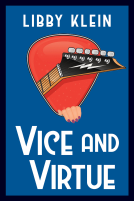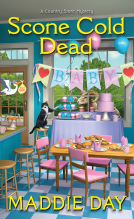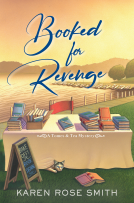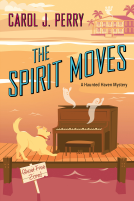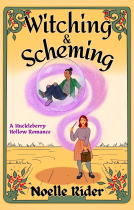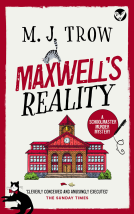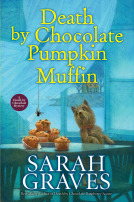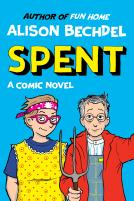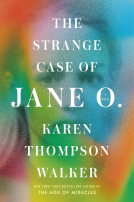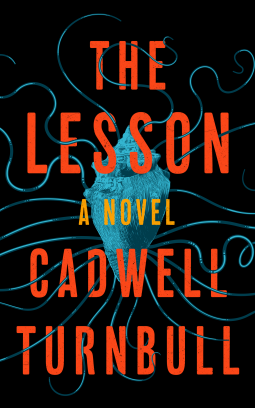
The Lesson
by Cadwell Turnbull
This title was previously available on NetGalley and is now archived.
Send NetGalley books directly to your Kindle or Kindle app
1
To read on a Kindle or Kindle app, please add kindle@netgalley.com as an approved email address to receive files in your Amazon account. Click here for step-by-step instructions.
2
Also find your Kindle email address within your Amazon account, and enter it here.
Pub Date Jun 18 2019 | Archive Date Jul 12 2019
Talking about this book? Use #TheLesson #NetGalley. More hashtag tips!
Description
They Will Teach Us The Lesson All Creatures Must Learn.
Cadwell Turnbull's debut science fiction novel, THE LESSON, explores the nature of belief, the impact of colonialism, and asks how far are we willing to go for progress? Breaking ground as one of the first science fiction novels set in the Virgin Islands, THE LESSON is not only a thought-provoking literary work, delving deeply into allegorical themes of colonialism, but also vividly draws the community of Charlotte Amalie, wherefrom the author hails.
An alien ship rests over Water Island. For five years the people of the U.S. Virgin Islands have lived with the Ynaa, a race of super-advanced aliens on a research mission they will not fully disclose. They are benevolent in many ways but meet any act of aggression with disproportional wrath. This has led to a strained relationship between the Ynaa and the local Virgin Islanders and a peace that cannot last. A year after the death of a young boy at the hands of an Ynaa, three families find themselves at the center of the inevitable conflict, witness and victim to events that will touch everyone and teach a terrible lesson.
A Note From the Publisher
Advance Praise
**Included in The Verge's Most Anticipated Science Fiction and Fantasy Books**
**Among B&N SFF's 25 Science Fiction & Fantasy Debuts That Will Transform Your 2019**
**Included in Bookish's 10 Out-of-This-World Sci-Fi & Fantasy Reads for Summer 2019**
**A Publishers Weekly Pick of Top 10 Books for Spring 2019 in Science Fiction, Fantasy, and Horror**
"The canon of science fiction brims with first contact stories, but rarely do those stories draw such strong and poignant parallels to humanity's history of colonialism as Cadwell Turnbull's extraordinary debut, The Lesson... some of the most memorable scenes in a work of science fiction in recent memory."
-Shelf Awareness
“Turnbull is a rising star in the science fiction and fantasy world.”
-The Verge
"Turnbull has been compared to Octavia Butler, and in his case I think the observation is a valid one. The Lesson isn't just a serious, important book-it's also a fun and rewarding one."
-Analog Science Fiction and Fact Magazine
“Emotional prose and distinctive characters highlight an incredible story that will touch readers’ hearts and minds. A compelling tale of invasive occupation and emotional uprising, Turnbull’s debut is complex and enthralling. It’s a must for all libraries, and the writer, who crafts speculative stories with black characters on par with Octavia Butler, is definitely one to watch.”
-Library Journal (Starred review)
"A persuasively—almost musically—worded meditation on colonialism and whether it’s really possible to return home again."
-Kirkus Reviews (Starred review)
"Several residents of St. Thomas weather the storms of life before and after the occupation of the alien species Ynaa in Turnbull's rich debut novel about family, love, and loyalty in turbulent times...Turnbull uses a beautifully drawn cast of black characters to convey the complexity of ordinary hardship in extraordinary times. This is an ideal story for fans of Emily St. John Mandel's Station Eleven and other literary science fiction novels."
-Publishers Weekly (Starred Review)
“Cadwell Turnbull paints a stunningly intricate portrait of humanity, capturing hopes and dreams, flaws and failings with remarkable depth and texture. The Lesson is a blast to read and a meaningful exploration of the bearing of colonialism and the perils of human ambition.”
-Sylvain Neuvel, author of The Test and the Themis Files trilogy
"I came for the aliens and a war of the worlds. I stayed for the deadpan St. Thomas humor, the complicated, charming, sexy island folk, and Turnbull's delicious prose. He may not only be a new voice in sci-fi, but also a major new name in Caribbean-American literature."
-Wilton Barnhardt, New York Times bestselling author of Lookaway, Lookaway
"The Lesson is a welcomed addition to the new wave of Virgin Islands literature. The plot is smooth and exciting, the polemics are subtle but smart, and the characters are heartfelt."
-Tiphanie Yanique, author of Land of Love and Drowning
“A compelling and layered narrative that explores colonialism and our messy human flaws through a diverse and painfully real cast of characters. The Lesson is smart, full of dry wit and creeping dread—a unique and artful debut.”
-M. K. England, author of The Disasters
“Cadwell Turnbull’s The Lesson brings an alien invasion to St. Thomas with a breadth that encompasses the past, present, and future. As his well-drawn characters wrestle with interspecies challenges, Turnbull imparts lessons that both embrace and transcend culture and race to drive at the heart of what it means to be human.”
-Tananarive Due, American Book Award winner, executive producer of Horror Noire
"In The Lesson Cadwell Turnbull, by setting his story in St. Thomas in the Virgin Islands, makes something completely new of the old theme of humans' first contact with superior aliens. Putting these "colonizing aliens" in a place shaped by colonialism opens new perspectives on issues of race and culture and sex and exploitation. But the true wonder of this novel is its beautifully realized portrayal of Charlotte Amalie and its deeply human and complex characters, young and old, all of them transformed by the arrival of the ambiguously motivated Ynaa. It's a story of mystery, romance, tragedy, and redemption. Like Octavia Butler and Ursula K. Le Guin before him, Turnbull uses the tools of science fiction to illuminate the human heart. The Lesson stands at the beginning of what I expect to be a long and illustrious career."
-John Kessel, Nebula Award-winning author of The Moon and the Other and Pride and Prometheus
“[A] bold and provocative debut…On the island of St. Thomas, a family collides with intergalactic meddlers, stranding two lovers with souls in distant worlds. A forbidding panoply of colonial mischief.”
-Kris Lackey, USA Today bestselling author of Nail’s Crossing
Marketing Plan
- National broadcast and print media campaign
- National review / debut author attention from reviewers/journalists
- Major bookseller merchandising / co-op
- National Author Tour
- Social media and digital/print advertising campaign
- Featured title/author at library, bookseller, and consumer trade shows and conferences, including LJ Day of Dialogue (debut panel), BookExpo/BookCon, and ALA appearances.
- College marketing push and author appearances
- THE LESSON has been optioned by AMC.
Available Editions
| EDITION | Hardcover |
| ISBN | 9781538584644 |
| PRICE | $26.99 (USD) |
Links
- Author Website
- B&N SFF Say Hello to 25 Science Fiction & Fantasy Debuts That Will Transform Your 2019
- The Verge's All the science fiction and fantasy books we’re looking forward to in 2019
- Analog Science Fiction and Fact Review
- Trailer Teaser 1
- Library Journal Starred Review
- Shelf Awareness Maximum Shelf Review and Interview
- Locus Review
Featured Reviews
 Reviewer 559737
Reviewer 559737
This was an anticipated read for me and so thankful to the publisher and NetGalley for providing me with the ARC! I am interested in seeing more from this author in the future.
Absolutely loved this perspective on invasion, especially comparisons to colonialism and the focus on people of colour-based. But not in a stark contrast to the human stories. It gave me all the feelings of Arrival, but more in-depth and with a deeper insight into the aliens. Mera's perspective was especially haunting in that it too was understandably human.
 Marie C, Reviewer
Marie C, Reviewer
Low key character driven scifi about an alien invasion that centers on the Virgin Islands. Turnbull focuses on the effects of two big incidents on the islanders, sidestepping a lot of plot-driven drama for the slow sleeping of consequences.
 Pamela M, Librarian
Pamela M, Librarian
3+ stars -- You don’t have to be a sci fi fan to appreciate this intriguing look at the good & bad sides of humanity. The Lesson is thought provoking and easy to believe.
 Michelle D, Reviewer
Michelle D, Reviewer
The Lesson by Cadwell Turnbull
Available June 18, 2019
The Lesson is a dark and twisting novel about how those that are most powerful can so easily justify putting their desires ahead of those less powerful than them. The island of St. Thomas has a long history of groups invading and conquering but none have been as deadly or feared as the Ynaa. Trading advanced technology and medicines for the right to live on St. Thomas, the Ynaa don’t see themselves as invaders. Coming from a dangerous and war-torn world, the Ynaa want only to study the humans on the island and live amongst the people. But when the Ynaa officials excuse the violent and deadly outbursts of their fellow Ynaa, the humans have had enough. The human governments are unconcerned about the deaths of a few islanders, there has been far too many medical and engineering advancements to justify fighting against the Ynaa. But there is evidence that the Ynaa have been on this earth for far longer than they claimed. Photographs and folktales of incredible strength and miracle cures are more common than people realize.
When another interaction with the Ynaa leads to the death of an islander, conflicts begin all over the island and no one is safe.
Dark, gripping, and powerfully written, The Lesson is a page turning thriller of violence and hope. I found it to be an interesting and engaging take on alien invasion. This is the first novel I’ve read about an alien invasion taking place on an island. Usually it’s New York City or Los Angeles-some major American city. It was quite refreshing to have the setting as St. Thomas and to see the difference a place makes in how the characters interact with the opposing force.
Highly enjoyed this one and I highly recommend it for anyone who loves a good sci-fi thriller.
Thank you to Netgalley and the Publisher for the opportunity to read and review this title. All opinions and mistakes are my own.
 Janee B, Reviewer
Janee B, Reviewer
Turnbull begins the tale innocuously enough. Aliens, (aka) Ynna arrive on the Virgin Islands peacefully. The author describes encounters of the first, third, and (maybe?) the fourth kind throughout the novel. Some of the novel seems a little nebulous to me. I don’t have numerous experiences with science fiction, but The Lesson is enjoyable. Also, the visitors are initially welcomed rather matter- of- factly because they will share great advancements in technology, science, and medicine. Peace does not last long during the Ynn tenure on earth; there is a plethora of conflicts—most of them tense understated, though deaths occur when the Ynna, are angered and insulted. A powerful attractive female Ynna, Mera, acts as the Ambassador, whose mission is to ensure the differing life forms co-exist. During their time on the Virgin Islands, the Ynn continuously remind there is a “lesson” to be learned by the humans; however, “the lesson” is never overtly revealed. After several years, the Ynna’s sporadic violence angers the humans, for they’re welcome to voice a complaint to the Ambassador, but she does little to appease them. Islanders eventually revolt because of several murdered Islanders whom they believe receive no justice, and the Ynna react with a large-scale retaliation before the Aliens depart.
Turnbull appears to be writing an extended metaphor about colonization of indigenous people and the effects of that system. Only a few agnostic native characters accept the Ynna as aliens and do not really fear them, while most of the others, instilled with strong religious values, come to see them as demons and devils. There are strong female characters, both youthful and elderly. The action is well paced for it sucked me in from the beginning. What about “the lesson?” each reader will discover his/her own lesson. That’s my story and I’m sticking to it!
 Bill C, Reviewer
Bill C, Reviewer
The Lesson by Cadwell Turnbull is a solid first-contact sort of novel that feel fresh due to its unique setting in the Virgin Islands and has some serious depth to it in the way it uses the encounter between aliens and the islanders as a vehicle for exploring colonialism/race relations, though it left me wanting a little bit more in terms of character and craft.
The novel opens pre-landing with an introduction to the various major characters, including:
• Derrick: a young sci-fi/fantasy fan who will eventually become assistant to the alien ambassador
• Patrice: his neighbor and best friend
• Jackson: Patrice’s father, a teacher and someone going through a mid-life crisis
• Aubrey: Patrice’s mother, also learning more about herself
• Grams/Harriet: Derrick’s stern grandmother
• Lee: Derrick’s younger sister
• Mera: the alien ambassador
Other characters also get some POV chapters, especially later in the book though fewer in number, some even allowed just one. We get just enough pre-contact writing to get a sense of who these people are, what their relationships are to one another, and then “a giant seashell” arrives in the sky and “Patrice thought to herself, this was how change occurred: something on the horizon closing in. She doesn’t seem imposing at first, but the she’s close enough for you to see the knife hidden under her dress.”
From there we shift briefly into a history of early invasion waves on the islands, culminating with the Carib and Arawak tribes noticing “boats bobbing on the sea, with large wings like bats . . . and pointed spears at their fronts. Boats much bigger than theirs and infinitely stranger.”
Turnbull then jumps forward five years with the Ynaa (the aliens) having settled in their landing area (and only there) and doling out scientific/technological advances as “payment” for them being allowed to stay unmolested while their work on some unnamed research project of theirs. The bribery via technology keeps the world quiet even as the Ynaa, who have a cultural tendency toward immediate, lethal violence regularly kills islanders who provoke them, often using their far greater strength to literally rip people in half. The Ynaa take on human form (though they move strangely) when they exit their ship, which isn’t all that often save for Mera, the ambassador who tries to keep encounters to a minimum. By this time Patrice and Derrick have gone out and then broke up when Patrice decided to go to school stateside while Derrick stayed on the island and now works as Mera’s assistant, a job that gains him nothing but disdain and anger from his fellow islanders. Aubrey and Jackson have divorced. Jackson is working on a book — “The Immortal Witch” about the Ynaa and about his unique theory that Mera didn’t actually arrive with them but has been on Earth for centuries, while Aubrey is in a relationship with another woman, something she is still feeling her way through (as is Jackson). As the book moves forward, more voices enter the narrative, including those affected sharply by some of the Ynaa killings, and we —and the characters — get the sense that things are inevitably hurtling toward a major confrontation.
Jackson’s theory about Mera turns out to be correct, and Turnbull uses the fact that she’s lived as a scout on Earth for so long to present some harrowingly powerful flashback scenes involving the brutal treatment of the islanders by the Europeans and a slave revolt. There is, of course, a clear connection being drawn here between the utterly remorseless violence the Ynaa inflict on the islanders (there is no difference as we’re shown in the Ynaa mind between tearing a dog in half and tearing a human in half) and the brutality of the European slavers. And the same holds for how the world turned a blind eye to slavery because of the benefits it brought (cheap goods, etc.) them just as the modern world turns a blind eye to events on the island because of all the medical, technological advances they gain from the Ynaa.
But Turnbull is interested in more than a simplistic, didactic “slavery bad, colonialism bad” statement. Or even the much more timely criticism of white privilege, as in the description by one of the islanders of a Ynaa:
He recognized the expression on her face … Tranquility. Not a care in the world. The Ynaa was certain that nothing could touch her. How wonderful it must be to float through the world with all that certainty, knowing you could do anything, and it wouldn’t come back to you. How wonderful it must be to feel safe.
For one, he begins the invasions of the islands not with the Europeans but with the Ciboney, who had landed 500 years earlier on the islands, driven out by the Arwaks, who were themselves raided by the Caribs. And when the slave revolt takes place, it isn’t centered simply on the idea of “freedom,” but is driven by a hierarchal sense of loyalty to kings and is horrifically violent in the presented details, as when a mother is “hacked to death” and her newborn killed in terrible fashion. All of this somewhat complicates the anti-colonial reading and broadens it into a wider exploration of power and resistance. Similarly, Turnbull isn’t interested in stacking the deck for the human rebels whose ranks include more than a few flawed characters and whose violence is not presented as wholly innocent, as purely cleansed via justification over the Ynaa killings of islanders. Violence, social violence in particular, and resistance justified by the acts of oppressors are always complicated creations and actions and Turnbull doesn’t shy away from that, presenting us a much more subtle, much more thoughtful examination.
This is certainly the strong point of The Lesson, and while the writing is mostly smooth and often offers up some wonderful writing on a line by line basis, the novel isn’t without some issues. While I liked that we met the characters a bit before the first contact, and then jumped ahead five years of time to the impact, that first section of the novel felt tonally/stylistically different in that I felt I was reading a YA novel (much of it was focused on the relationship between Derrick and Patrice). The gradual widening of the novel into more POVs was effective in showing us a variety of responses to the Ynaa (and the underlying meaning they represent) and the violence, but the execution wasn’t quite smooth. Some shifts felt abrupt, some of the balance felt off, and I wanted to spend more time with some of the major characters whose presence in the novel was diminished by the other POVs. Here, I didn’t want fewer POVs but did want a longer book (something I don’t normal wish for in a review) so as to give space for these characters to breath and become fully fleshed out a bit more. Similarly, two subplots involving a pregnancy and a cancer could have done with more time. Finally, more pages would have allowed Turnbull to give us more context regarding the alien impact and the world’s response beyond the islands. I didn’t need a lot, but that bit of world-building felt very thin.
These are definite flaws, as noted, but I’ll happily take a book that explores complicated topics in a manner worthy of that complexity and that has me asking for more words rather than fewer. And I’ll certainly be interested in seeing what Turnbull does next.
The Lesson by Cadwell Turnbull is a unique speculative science fiction/political thriller. Well drawn and relatable characters and set in a tropical island "paradise". It's unclear if the lesson the aliens are trying to teach was learned, perhaps that could be addressed in a sequel. One "Lesson" I did learn is that Mr. Turnbull
is a uniquely creative author and I will be looking forward to his next book.
Thank you to the publisher, author, and NetGalley for the opportunity to preview the book.
From my review at B&N:
I’ve been a fan of Turnbull’s short fiction for some time (he’s been published in Nightmare, Lightspeed, and Asimov’s). In his first novel, he displays a sure hand with plot and characters, creating a complex world that is firmly anchored in, and made more compelling by, its roots in real history. The Lesson should appeal to fans of the socially aware and thoughtfully constructed science fiction of Ursula K. Le Guin and Octavia E. Butler, works that are concerned with more than the gee-whiz noise and flash of strange aliens and nifty new tech, that are deeply concerned with how encounters with beings not like us might change society, even as they echo events from our own past.
(vague spoilers, no specifics)
This book kept me up and, had it not been for work, I could have finished it in one sitting. The comparison to Childhood's End feels obvious and easy, but it's also one the book earned for me. I will sit with this pit of existential anxiety in my gut for some time thinking about The Lesson. Invasion fiction from the Caribbean makes so much sense it is surprising we haven't seen more of it.
Mera's character and her history are so fascinating and compelling, and the historian and David Mitchell fan in me both wanted more of it. Truly, I think most of my complaints about this book are that I want more, deeper, closer looks at every part of this universe.
Even though there are elements of this book's structure and organization that felt difficult, I also appreciated the reasons they might still be there. I understood the somewhat jarring jumps in timeline because it felt real to the experience of witnessing truly world-altering events. I found myself mapping out character relationships to make sense of the interactions of their stories, but even that seemed to put me in the place of an invading/arriving alien to whom humans are humans no matter the individuality. I even understood the lack of real examination of the way the rest of the world viewed the events. Honestly how many Americans even realize the Virgin Islands exist, let alone realize it's a "US Territory".
 Susan M, Reviewer
Susan M, Reviewer
An alien ship lands on Water Island. The aliens are known as the Ynaa. They are strange in that they don’t show their emotions, intend to do some unspecified research. What kind of research? Why don’t they tell? In exchange, the Ynaa give humans advances in medicine and other technology. The Ynaa look very much like humans but are much stronger. They also react to perceived violence or real violence with far more violence. Even the Ynaa’s violence is more excessive, the government ignores it — in other words turn a blind eye to it. Why? Supposedly the Ynaa lived by a code of survival which gives them their attitude about violence. After a few years, the humans are tired of finding a dog killed by the Ynaa and a young’s man snapped is too much. The Ynaa are being less forthcoming. The Ynaa had landed before to have one of them be a Ynaa ambassador, Mera, which had been unknown to the humans. She has been at the island for centuries where she was firsta slave. As the centuries went by she became closer to humans than the Ynaa. She questions her people’s life and secret mission. What will she do?
As I read this novel, I found myself fascinated with the humans reactions to the Ynaa and Mera. It was slow reading at first for me as I didn’t understand how the author was writing his novel. It’s more than a science fiction novel. It is a story about more than just colonialism, but also about conflicting moralities in two different cultures.
The novel is about loyalty, love and family in strange times.
 Susan R, Bookseller
Susan R, Bookseller
An interesting read. On the one hand, hard science fiction (aliens who tear humans in half, with space ships and tentacles!). On the other, a beautifully-written lens into the history and culture of St. Thomas, an examination of prejudices and bias, and a very human story of relationships, religion and family. What I liked about this combination is that the author uses the sci-fi backdrop as a tool to elevate and progress the human issues and narrative---the world building is present but recedes, leaving the reader with an emphasized view of the main characters. Also surprising is the cast of main characters: there is no hero or villain here, which is a strength. All in all a unique book, well-researched and executed. Would recommend to a certain kind of reader willing to take risks.
 Allison M, Librarian
Allison M, Librarian
This is extremely literate and subtle science fiction, layered onto a story about the fallout from colonialism, family relationships, the struggle between faith and science, fear of the other and a bunch of other things I'm probably missing.
It's a different experience reading about black people in a place where most of the population is racialized, so structural racism obviously exists but isn't played out the same way as it is when they aren't a minority population. The issue of racism set against the perception and treatment of the Ynaa who are literally alien is jarring and illuminating.
The sense of place is vivid and arresting - you can almost feel the heat, smell the vegetation and the cooking. The characters are vibrant and authentic, so even though there are quite a few it's not at all difficult to tell them apart. I had no idea where the story was going to go, but there was a palpable sense of menace and melancholy, of people desperate to connect but doomed by misunderstandings of all sorts.
The way the story starts, with the occupation a foregone conclusion, situates the suspense differently from other alien invasion stories. The Ynaa presence isn't the biggest problem in some of the characters' lives, and the back story of the Ynaa ambassador is endlessly fascinating. This book led me to look immediately for everything else I could find written by this author, and I will read his forthcoming book the second it's available.
Readers who liked this book also liked:
Karen Thompson Walker
General Fiction (Adult), Literary Fiction, Sci Fi & Fantasy

